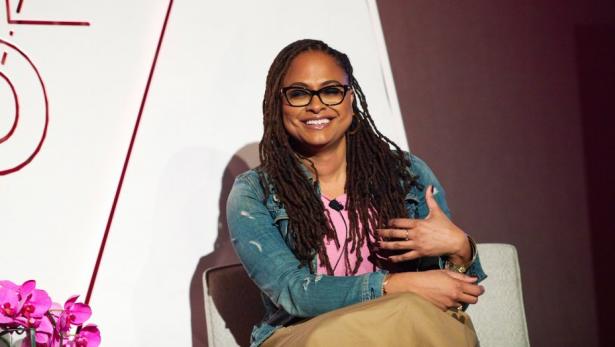film Ava DuVernay Cautions Against Premature Victory Lap for Hollywood’s Diversity Gains
“We sit on top of a broken system,” the ‘Wrinkle in Time’ director said Friday as part of W Hotels’ What She Said series.
As Ava DuVernay prepares to release Disney’s eagerly anticipated A Wrinkle in Time adaptation, which has put her in the history books as the first woman of color to direct a film with a $100 million-plus budget, she cautions against thinking that Hollywood has finally solved its diversity problems.
“I’m an anomaly,” DuVernay told the intimate, mostly female, gathering at W Hollywood on Friday night, kicking off the 2018 season of W Hotels’ What She Said speaker series. “[Black Panther’s] Ryan Coogler is an anomaly, Barry Jenkins is an anomaly, Dee Rees is an anomaly. When you can name us all on two hands, that’s not change.”
That’s not to say there hasn't been progress. “There was a time when Hollywood said, ‘We will tell your story,’” said DuVernay, pointing to films like Glory and Beasts of the Southern Wild, which featured black characters but were made by white filmmakers. “That didn’t feel like what I knew as a black girl, but it’s an interpretation, not a reflection, and that’s valid. But we’re in a dynamic time right now, telling our own stories.”
But to be truly effective, just having a woman at the helm if the rest of the crew is male is not enough. “These are moments that are not sustainable unless there’s systemic change,” DuVernay continued. “We sit on top of a broken system. Unless there is systemic change, we’re just the sparkly stuff on top that makes people feel good.”
After two decades in the industry — much of it spent as a publicist moonlighting as an indie filmmaker — DuVernay has a certain wariness, something she now actively fights against as she tries to approach meetings “with an open heart and mind, as opposed to being on guard.” Her close friend and Wrinkle actress Oprah Winfrey offered valuable advice: “This bad thing’s not happening to you, but for you. You have to figure out why.”
Wrinkle in Time proved to be a therapeutic experience for DuVernay, who admitted that she is “the type to stay on Twitter all day, stewing and tweeting mean things to the president.” Instead, the massive motion picture kept her mind on more pleasant tasks, such as designing flowers and other otherworldly visuals for the film. And making this kids movie also showed the 45-year-old filmmaker she still had an inner child, to her surprise.
DuVernay praised Wrinkle in Time author Madeleine L’Engle as a “radical, interesting white woman” whose 1962 sci-fi classic blended “social commentary, spirituality and spectacle.” At a recent dinner party, the director met someone who personally knew L’Engle, who died in 2007. DuVernay found herself pulling him aside and questioning him anxiously, “What do you think she’d think of me directing this movie? With a black Meg [the book’s young female heroine, portrayed by Storm Reid]?” When the man responded that L’Engle would have loved it, she burst into happy, relieved tears.
In addition to making her own films featuring strong, diverse women in front of and behind the camera, DuVernay also continues to champion films made by other women and people of color through her six-year-old distribution platform Array, which became a nonprofit last year on the advice of Ford Foundation president Darren Walker, who said it couldn’t be as sustainable if it was fueled solely by DuVernay’s directing profits, as it had been. With grants from Ford and others, DuVernay announced that Array had purchased “three stubby buildings in the textured, non-gentrified part of Echo Park” and is moving in this weekend.
Change needs to occur at multiple loci and will be driven by “passion from a large consensus of people,” DuVernay said, pointing to the tide turning in the AIDS crisis not so much by policy or government agencies but by movies and plays such as Philadelphia and Angels in America. “That’s what film can do.”
“The only thing that instigates change is audiences saying, ‘We don’t want that anymore. Black Panther, we want this,’” said DuVernay, adding that a good indication of progress beyond the surface will be, “Is this gonna do anything more than Panther 2?”
REBECCA SUN


Spread the word